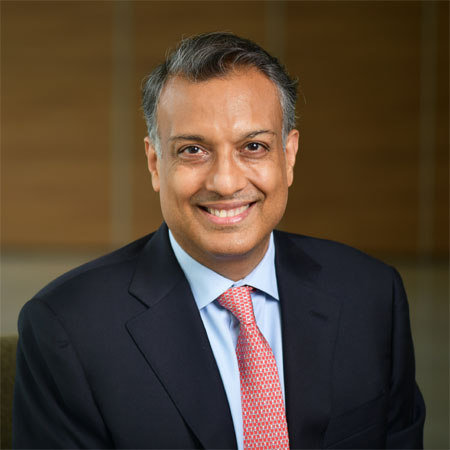Sumant Sinha, Chairman and CEO ReNew
India’s clean energy-based development model is a beacon: Sumant Sinha, Renew
India is really showing by its own actions how this development path can actually lead to better outcomes, bring down the cost of energy, lead to clean energy and give energy access to people.

About The Episode
Welcome to the full Episode 3 of Sustainability Karma, India’s first and only talk show on sustainability on All India Radio.
In this episode of Sustainability Karma, Sumant Sinha, Founder, Chairman, and CEO of Renew talks about his updated book Fossil Free: Reimagining Clean Energy In A Carbon Constrained World, emergence of ReNew as a decarbonisation company and his outlook for India’s renewable energy sector.
He says the book update was prompted by sector transformations, emergence of new technologies, regulations, civil society dynamics and energy transition, which is progressing towards a hydrogen-based phase. The book strives to capture this ongoing shift, acknowledging the pivotal role that green hydrogen will play in the future—a crucial component of phase two of the energy transition.
Mr Sinha says that Renew’s vision has evolved beyond being merely a renewable energy provider to become a comprehensive decarbonisation partner for corporations and countries, addressing the entire energy value chain to have a meaningful impact on carbon emissions. The focus extends to full-scale decarbonisation, with green hydrogen playing a significant role as a molecule-based product in the future energy landscape.
Sharing his outlook for the renewable sector in India, he says India’s renewable energy mission with ambitious targets is on track. Prime Minister Narendra Modi’s commitment to renewable energy targets signals a fundamental shift in India’s energy landscape, positioning it as a potential global leader in clean energy. At the same time, India faces a critical challenge as the third-largest emitter globally because of current dependence on coal in the power sector and imported fuel in the mobility sector.
Besides, there is a need to address challenges related to rare metal supplies affecting the sector, which are crucial for energy transition. Political instability in mining countries poses a challenge, and solutions involve exploring local resources, promoting circularity through recycling, and establishing partnerships with other countries to secure supplies.
Referring to India’s appreciable progress on Sustainable Development Goal (SDG) 7 on access to clean and affordable energy, he says, it requires acceleration. Achieving energy access for all involves addressing distribution utility challenges, reducing losses, and enhancing the quality of power supply. While government initiatives focus on consumer protection and improvements are needed, particularly at the state level, the interface between DISCOMs and consumers needs enhancement through digital platforms, time-of-day pricing, and improved power supply quality.
Referring to the G20 platform, he says, India’s development model based on clean energy serves as an example for other developing countries. The emphasis on lifestyle for the environment aligns with the need for individual responsibility in energy consumption and waste reduction. India’s leadership in showcasing cleaner paths and sustainable living can inspire global transitions.

